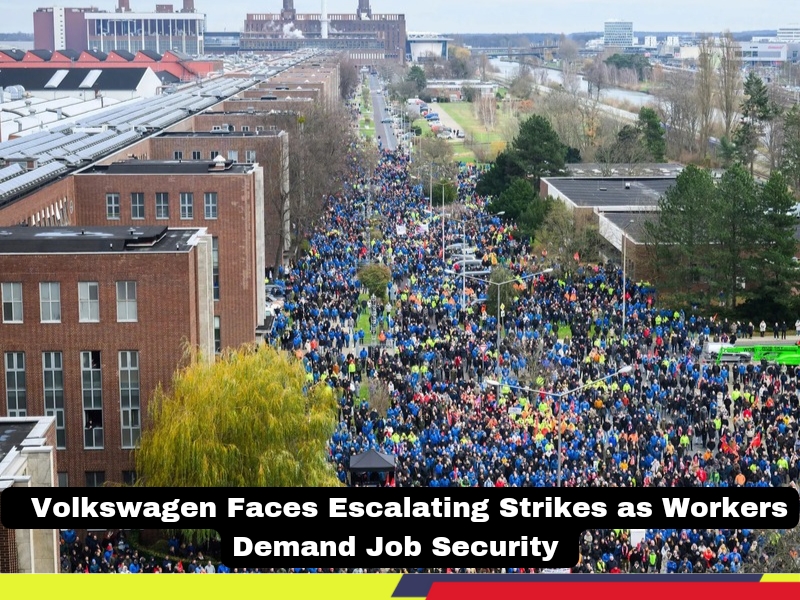Volkswagen, one of Germany’s most iconic automakers, finds itself in the midst of a tense labor dispute as thousands of workers across nine factories walked off the job for several hours on Monday. The strikes, organized by the powerful IG Metall union, signal escalating tensions as the two sides grapple over wages, job security, and the future of Volkswagen’s German operations.
The Core of the Dispute
Volkswagen is negotiating with IG Metall to address rising costs while attempting to safeguard profitability. As part of its strategy, the automaker has proposed a controversial 10% wage cut and hinted at potential factory closures in Germany—moves that would mark a stark departure from its 87-year history of maintaining domestic operations.
IG Metall, representing the majority of Volkswagen’s workforce, has vehemently opposed these measures. Workers are demanding job guarantees and a commitment to keep German factories running, citing concerns about long-term stability and the social impact of potential layoffs.
Workers Push Back
Monday’s strikes were a warning shot, with employees staging two-hour walkouts at Volkswagen’s primary plants and several subsidiaries. The union has vowed to escalate its actions if no agreement is reached, including the possibility of open-ended strikes that could severely disrupt production.
“If necessary, this will be the toughest collective-bargaining battle Volkswagen has ever seen,” said Thorsten Gröger, IG Metall’s chief negotiator and district manager. His statement underscores the high stakes of the negotiations and the union’s determination to secure a favorable outcome for workers.
Broader Implications for Volkswagen
The labor dispute comes at a critical time for Volkswagen, as the company faces mounting pressure to transition toward electric vehicles while maintaining profitability in a competitive global market. Factory closures and wage reductions could help cut costs, but they also risk damaging morale and sparking broader unrest among the workforce.
The strikes could also have ripple effects beyond Germany, as the automaker’s domestic operations remain a central hub for its global production network. Extended disruptions could delay vehicle deliveries and impact Volkswagen’s reputation as a reliable industry leader.
What’s Next?
As negotiations continue, all eyes are on Volkswagen’s leadership to determine how far they are willing to push cost-cutting measures. IG Metall has made it clear that it is prepared for a prolonged battle, raising the stakes for both sides.
For Volkswagen, the challenge lies in balancing the need for financial sustainability with maintaining the trust and support of its workforce. For the workers and their union, this is a fight to secure jobs and protect their livelihoods in an uncertain economic landscape.
The coming weeks will be pivotal in shaping the future of Volkswagen’s operations and labor relations in Germany, with potential implications for the broader automotive industry.




